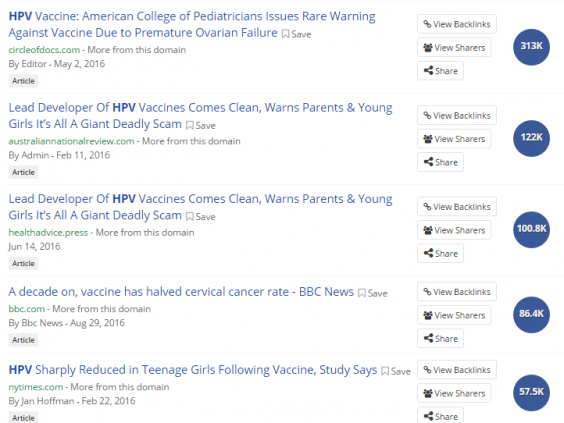Fake News: Why does it matter?
- This guide discusses the issue of fake news.
Contact@Reference
Why does it matter?
Believing in fake news stories can have real-life consequences. For example, a man armed with a rifle fired his weapon in a Washington D.C. pizzeria, claiming that he was "self-investigating" an online conspiracy theory that claimed the pizzeria was the center of an international Satanic child sex abuse cabal hosted by powerful Democrats. The claim was false.
This remains an issue for medical professionals as well, as patients may be exposed to medical misinformation online. For example, many diseases that were once thought to have been eradicated have returned - something health officials believe is due in large part to the anti-vaccination movement. This movement got its start from a study that linked vaccines to autism in children. The study's results were unable to be replicated, the paper was retracted, and the doctor who conducted the study lost his license to practice. However, there are those who still hold onto these beliefs despite the fact that they have been proven false multiple times.
Some publications also have inherent biases. Generally speaking, it's not possible to completely eliminate bias in any publication, but that doesn't mean that all publications are created equal. The Media Bias Chart below offers one ranking system for popular publications. Keep in mind, your patients aren't keeping up with the technical literature like you are, so it's important to talk to them about where they're getting their information.

Reproduced with permission from Media Bias Chart
Regular News
Fake news stories are widely shared on social media
In fact, toward the end of the 2016 election, users engaged with fake news stories more than they did with mainstream news stories. That doesn't mean that they believed them, necessarily, but it does mean fake news was getting more attention and reaching farther than actual news.

75% of adults can't recognize fake news
According to a poll conducted by the international research firm Ipsos on behalf of Buzzfeed news, 75% of adults who viewed a fake news headline viewed the story as accurate.

Image from Buzzfeed News: Most Americans Who See Fake News Believe It, New Survey Says
Medical News
Inaccurate medical stories on Facebook often attempt to provoke an emotional response from readers while also doing what they can to discredit more reliable sources of medical information.
For example: A study published by the American Journal of Infection Control found that while there is more accurate information than inaccurate information on Facebook, sources with inaccurate information receive significantly more attention.
- A video containing false information titled "10 reasons why Zika virus fear is a fraudulent medical hoax" was watched more than 530,000 times and shared more than 19,600 times.
- The most popular post containing accurate information was a press release from the World Health Organization. It was viewed 43,000 times and shared 964 times
Analysis by The Independent found that more than half of the top 20 most-shared articles containing the word "cancer" in the headline contained information that had been discredited by doctors and health authorities.
The Independent also found that 3 of the 5 most-shared articles containing "HPV" in the title have been declared "false" by Snopes, an independent fact-checking website. The 3 that were discredited were shared significantly more than the 2 articles containing accurate information.

Revealed: How dangerous fake health news conquered Facebook - The Independent
Zika virus pandemic—analysis of Facebook as a social media health information platform - The American Journal of Infection Control
